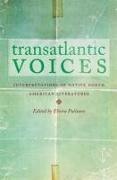Institutions of the English Novel: From Defoe to Scott
BücherAngebote / Angebote:
Brown presents his theory of the novel as institutionalized and institutionalizer in a manner often as engaging as that of his privileged authors. The result is a book that takes an erudite and elelgant next step in the debate over the origins of the novel."--Nancy Armstrong, Brown University"Must-read meditations on the mystical protocols and a priori assumptions of novel studies."--Deirdre Lynch, NovelIn Institutions of the English Novel, Homer Obed Brown takes issue with the generally accepted origin of the novel in the early eighteenth century. Brown argues that what we now call the novel did not appear as a recognized single "genre" until the early nineteenth century, when the fictional prose narratives of the preceding century were grouped together under that name.After analyzing the figurative and thematic uses of private letters and social gossip in the constitution of the novel, Brown explores what was instituted in and by the fictions of Defoe, Fielding, Sterne, and Scott, with extensive discussion of the pivotal role Scott's work played in the novel's rise to institutional status. This study is an intriguing demonstration of how these earlier narratives are involved in the development and institution of such political and cultural concepts as self, personal identity, the family, and history, all of which contributed to the later possibility of the novel.Homer Obed Brown is Professor of English at the University of California, Irvine, and the author of James Joyce's Early Fiction: The Biography of Form.Critical Authors & IssuesWorld Rights | Literature
Folgt in ca. 15 Arbeitstagen




